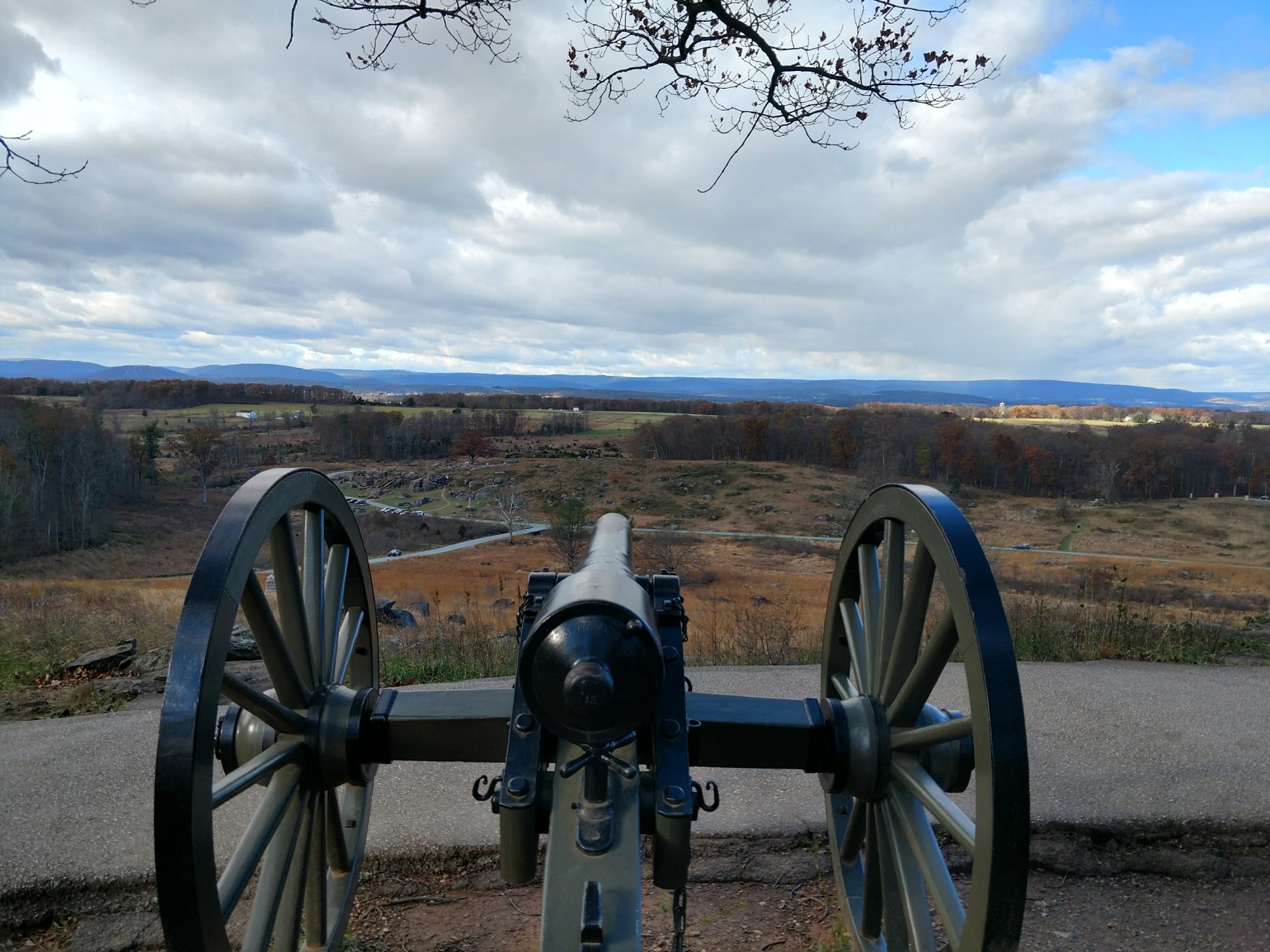There’s a moment on the television show “Scrubs” (the greatest thing to ever air on American television) when the young resident John Dorian (JD) becomes paralyzed by the fear of accidentally killing a patient by making a mistake. In this mindset, he veers away from making any risky decisions or undertaking any procedures that might harm a patient. His mentor, Dr. Cox, played by the inimitable John C. McGinley, tells him to relax: he’s already killed a patient through misdiagnosis. JD loosens up with this knowledge and is able to perform at the level expected of a resident. After JD performs a difficult procedure, Dr. Cox, ever the evil manipulator, informs him that he lied: JD hadn’t killed anyone at all, but he wanted to show the young doctor how the psychology of fear works.

Much of the rhetoric surrounding the ongoing conflict in Syria is based on preventing a World War III. This either comes in the form of limited military action for fear of escalating the conflict or as gleeful rhetoric from those who love to point out that the sky is falling. Well, it’s a little late for that worry, as we’ve been involved in World War III since 2001.
Some would readily counter that this “era of persistent conflict” in no way resembles the massive, widespread destruction that we saw in World Wars I and II, but that overlooks much of what can historically be seen as a global conflict. In other words, just because a conflict isn’t tagged with the moniker “world war” does not make it ineligible for that dubious honor. A perfect example is the Seven Years’ War. Bear with me here.
The Seven Years’ War (or, if you’re from North America, the French and Indian War) began as a colonial squabble between Virginia and Pennsylvania over some land near present-day Pittsburgh in 1754. Oh, and that land happened to be claimed by the French. A few musket shots, tomahawkings, and injudicious signing of documents later (a Virginia militiaman named George Washington couldn’t read French and basically signed a document stating he started the whole fracas), and England and France were at war. Like all good colonial wars, the whole thing got all mixed up with lines of succession on various thrones of kingdoms, rights to different colonies, and good-old fashioned revenge. Prussia, Portugal, and a bunch of middling German states jumped in on England’s side, while France got its normal Catholic posse of Spain and the Holy Roman Empire together (Austria, Saxony, and Bavaria), with Sweden and Russia tagging along. While the combatants were all European, they were fighting all over the world, from the forests of North America to the jungles of the Caribbean and the plains of India. Fighting even spread into Africa and the Philippines. They duked it out in Europe as well, because it’s just not a world war unless you’re invading the Low Countries. Because of how widespread the conflict was, how long it dragged on (1754-1763), and how many of the great powers it involved (everyone except the Ottoman Empire, which was odd, as the Turks were usually down for a good global dust-up), many historians, namely Fred Anderson, have called it the first world war.
Spoiler alert: England came out on top, gaining exclusive control of North America, and started levying taxes on their colonies to pay for the war. Things got a little out of hand and led to this little thing we call the American Revolution.

Fast forward 238 years to 2001.
With conflicts against state-sponsored terrorism and radical Islamic-inspired insurgencies in Iraq, Afghanistan, Yemen, Philippine Islands, Djibouti, Somalia, Kenya, Ethiopia, Chad, Mauritania, Mali, Pakistan, Libya, Nigeria, Syria, Kashmir, and Cameroon, we cannot say that the conflict is not becoming global. And those countries, by the way, are just where NATO forces have deployed to or conducted military strikes. One could easily add Sudan, Burundi, Jordan, Egypt, China (who desperately attempt to conceal their operations against Uighur separatist movements), Russia (Chechnya, Georgia), and Turkey to this list. And speaking of Russia, let’s not forget their annexation of Crimea through thinly-disguised “separatists” (who managed to down a civilian airliner). As if that weren’t enough, Al Qaeda and their bastard children, Daesh, have carried out or inspired attacks in the United States, Indonesia, Morocco, Turkey, Spain, the United Kingdom, Algeria, France, and Canada.
One could look to Central and Latin America, where drug cartels continue to wage war against state military forces. These wars and gang violence have caused an immigration and refugee crisis from these countries, as civilians flee the violence to Mexico and the United States. In addition to providing financial aid to these nations, the U.S. provides combat support through training of their police and military forces. These wars have increased in deadliness and ferocity, as weapons technology advances and arms proliferation from failed states such as Somalia and Libya increases. The improvised explosive device, an icon of the wars in Iraq and Afghanistan, has become common in the southern hemisphere. While the drug wars and the war on terror share little in the way of ideology, they are fought using the same weapons, tactics, and techniques.

Just for fun (maybe the wrong word here), let’s go back to Eastern Europe. Fighting continues in Ukraine, mostly limited to skirmishes with light weapons, but occasionally marked by exchanges of artillery fire. The Ukrainian Army occupies positions reminiscent of World War I trenches and is vastly outgunned and out-supplied by the Russian-backed separatists. In nearly two years of fighting, more than 9,000 soldiers and civilians have been killed. U.S., Canadian, British, and Lithuanian military personnel are in Ukraine, helping rebuild their army basically from scratch. While there has been a lull in major fighting after the Minsk Agreement in February of 2015, not all is quiet on the Eastern Front. Nor should we expect it to remain so.
And then there’s Iraq and Syria. Oy. Where even to begin? First off, we’ve got the U.S. backing various factions fighting both Daesh and the Syrian military. And then you’ve got Russia backing Syria’s Assad regime and bombing, well, pretty much everything and anything it wants. Because of Russian airpower, Assad appears to be regaining the military initiative on the ground to close off rebel lines of supply and reduce their strong points, usually by siege. These sieges – such as the one at Madaya – are only adding to the worst humanitarian crisis since World War II. One need only look at the hundreds of thousands of refugees streaming into Europe to see the second and third order effects of the Syrian Civil War. While the United Nations has strongly condemned the atrocities carried out by the Syrian government, there has been no concrete effort by the international community to use military force to stop the murder of thousands of civilians. The much hailed cease-fire, brokered by the U.S. and Russia, shows small signs of hope in getting aid to thousands of starving Syrians, although the agreement does not include many of the militias in Syria, or the Daeshbags. Nor does it in fact give signs of a long-term agreement that would punish the Assad regime for its war crimes, namely because Russia (funny how they keep popping up in the discussion) has shown no indication that it would allow a negotiated transfer of power to someone less-homicidal. And it doesn’t help when Assad states that he intends to retake his entire country.

And while Daesh has carried out a similar number of attacks as Al Qaeda had, they have done something that Al Qaeda never did: seize and hold territory. While in Iraq their ability to move openly and conduct what we might call maneuver warfare has been checked by Iraqi counteroffensives, U.S. and Coalition airstrikes, and the sheer ballsiness of the Kurds, they still are able to operate with impunity in Syria. They have taken advantage of the civil war to carve out territory and hold it. Not until the Syrian Civil War ends can some sort of concerted military effort against DICS (Daeshbags in Contemporary Syria: see, I can make up my own acronyms to) succeed.
All of this is overlooking the regional power spat between Saudi Arabia and Iran and Turkey’s ever-growing dissatisfaction with everything and anything around it. Or China’s military aspirations in the South China Sea. Or the ongoing “will they, won’t they” between the Koreas.
And lest some might say that a third world war would have to be started with the use of nuclear weapons, let me just throw this out there, from the late historian John Keegan:
“Nuclear weapons have, since 9 August 1945, killed no one. The 50,000,000 who have died in war since that date have, for the most part, been killed by cheap, mass-produced weapons and small-calibre ammunition, costing little more than the transistor radios and dry-cell batteries which have flooded the world in the same period. Because cheap weapons have disrupted life very little in the advanced world, outside the restricted localities where drug-dealing and political terrorism flourish, the populations of the rich states have been slow to recognise the horror that this pollution has brought in its train.” (Keegan, A History of Warfare (New York, Alfred A. Knopf, Inc, 1993)
So there it is. A world (well, three continents at least) at war. Now let’s stop trying to prevent a World War III and get around to ending the one we currently have on our hands. As the first step in Alcoholics Anonymous states, the first step in recovery is acceptance. Let’s start allocating the assets, economically, militarily, and diplomatically, to end this global addiction to war.
Enjoy what you just read? Please like or share on social media using the buttons below.




You must be logged in to post a comment.